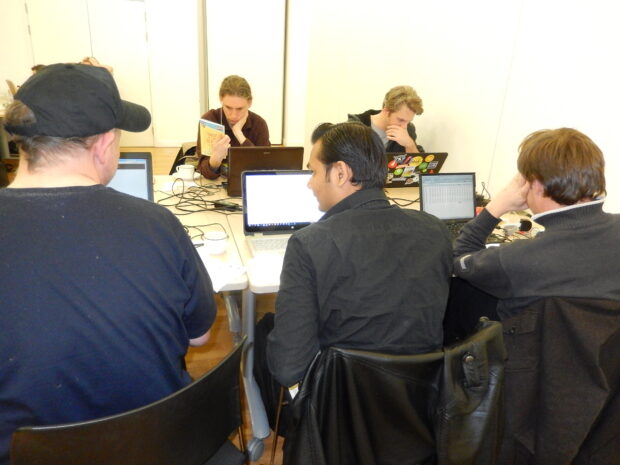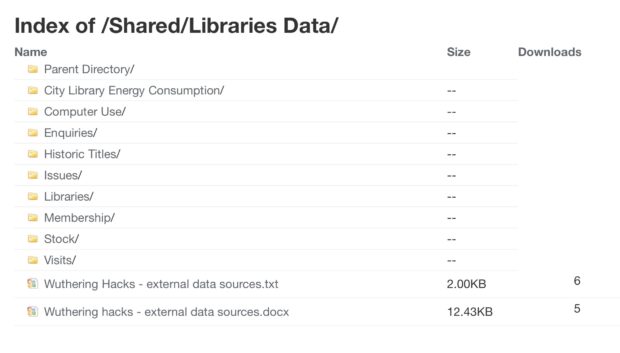[Editor's note: Guest blog post from Aude Charillon, about the recent data hack event in Newcastle]
Libraries and librarians stand for the sharing of information, knowledge and culture.
With that in mind, I developed at Newcastle Libraries the Commons are Forever project, which aims to empower members of the public about their rights to use creative works that are free of copyright (e.g. in the public domain or under an open licence) and to, in turn, share what they create with others. This project was funded by the Carnegie UK Trust as part of the first round of the Library Lab programme.
Since April 2015, we have worked with local artists to offer workshops where participants had fun remixing images, sounds or films that are available freely and legally. But in 2016, we decided we wanted to explore another way of sharing and re-using information and culture. We thought: “it’s all very well using creative works made by others, but what about the content the library service holds and the information we, as an organisation, collect?” We felt we were only the custodians of that information and that it was our turn to make our information more available; we wanted to give it back to our residents and visitors and empower them about their rights to use and re-use our data.

How we did it
We released as much of Newcastle Libraries’ data as we could, all under an Open Government Licence (OGL) which allows anyone to re-use the content in any way they like, including for commercial purposes, as long as they mention where the information came from. We also organised a day-long hackathon called Wuthering Hacks, to encourage people to do something with the information we were releasing.
My project supervisor at Newcastle Libraries, Luke Burton, and I worked with our IT colleague at Newcastle City Council responsible for the implementation of the Council’s open data policy. If it was an experiment for Newcastle Libraries, it has also been one for the Council as no other department had so far systematically looked at releasing such a large and varied set of data. Libraries are now leading the way with open data at the Council!
We met with several individuals who had experience of running hackathons and using data; our IT colleague was instrumental in introducing us to interested parties including developer groups and the North East data community. This gave us valuable insights into what format our information should be released in to be usable, what people expected of a hack day and who may be interested in coming along.

What people did with the data
A dozen people came to Wuthering Hacks to learn more about our data and put into practice some ideas of what they could with it. The “tidied-up” data – visitor figures, number of items issued and PC usage for all libraries, geographical coordinates of all libraries, energy consumption and costs for City Library, lists of titles and items in our catalogue - had been uploaded to Newcastle City Council’s open data web pages and our digitised historical maps had been published on Flickr while everything else (!) was made available on our LibraryBox (a digital file-sharing device composed of a USB stick and a wifi router) at City Library.

We had some very interesting results. One participant looked at PC usage over the years and created graphs showing its evolution. A few used our historical maps and superimposed them unto current ones. Another used image recognition and a web speech API so that when you scan the barcode of a book with your device’s camera it reads out loud the summary taken from the catalogue. Another took our historical titles, digitised only in PDF, and turned them into a more user-friendly format. Another plotted our members on a map of the UK and created a library usage data dashboard…
More to come
We were very pleased with how the event went but we also learnt a lot on the day, and are therefore keen to run another hackathon in a few months’ time with a slightly different format. Ideally we would like to run hack days a few times a year, possibly on different themes and in partnership with other local organisations (cultural institutions, library and information services or other).
But first, though, we will be working on releasing more library data on the Council’s website. We hadn’t realised until we started that there was so much data we held and that we could release! We will also be putting in place processes to update the data sets regularly.
------------------------------
Please note, this is a guest blog. Views expressed here do not necessarily represent the views of DCMS or the Libraries Taskforce